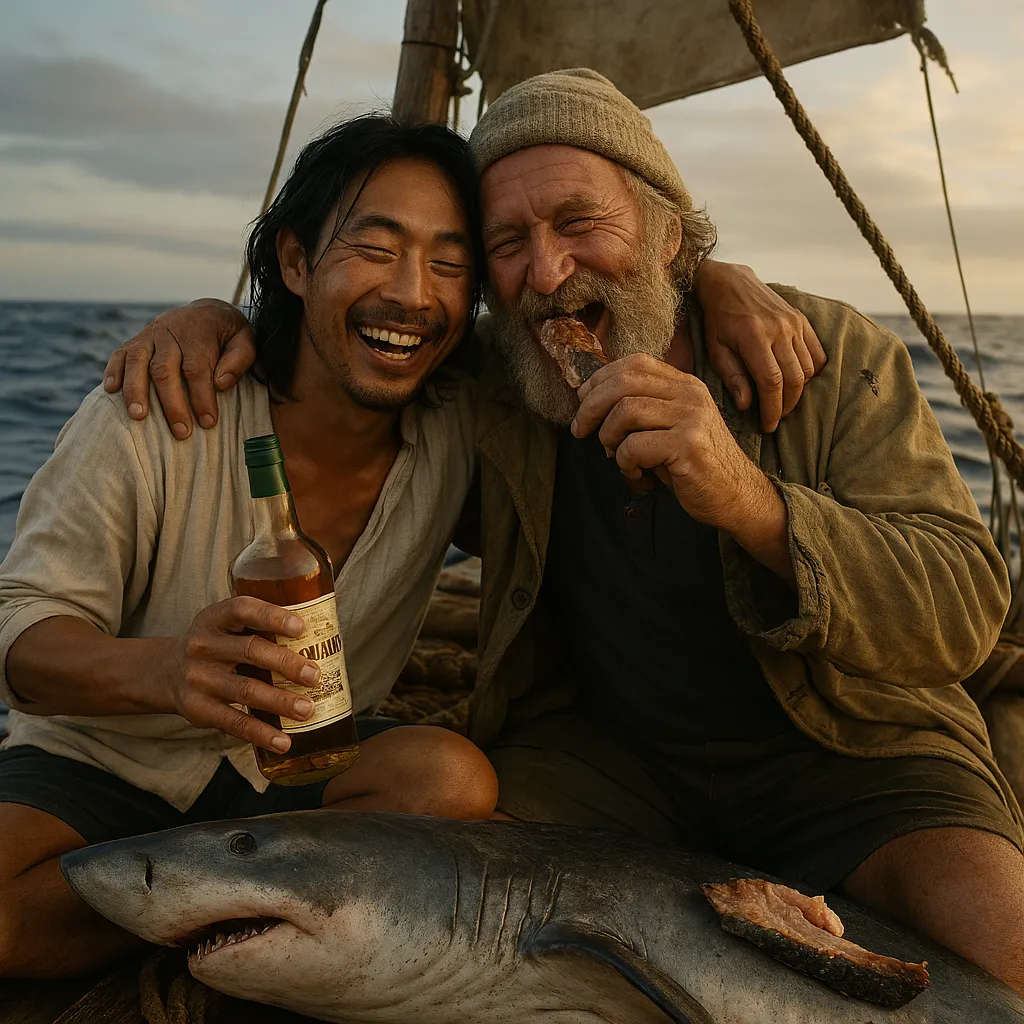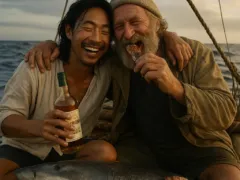This story began on a windswept beach in Madagascar in February 1988, where the ocean whispered legends older than memory. A young Japanese man named Haruto Takahashi, driven by stubborn dreams and the whispers of antique maps, came face-to-face with a past that refused to be buried.
Haruto Takahashi found a chest buried in sand and salt, its boards swollen with age and its edges rusted with iron. When the lid gave way, gold burst forth like sunlight in his hands, along with rings, goblets, and otherworldly stones. Around it lay remains — skulls with empty sockets, broken bones, buttons from faded frock coats. It was clear: someone had died there, guarding the treasure more fiercely than any fortress, and the sea had taken their names.
He didn’t go to the authorities. Not out of greed — but out of a stubborn belief that fate sometimes chooses just one. He hauled the loot into a small rowboat, tied the chest with sailor’s knots, and pushed off at dawn. By day the sun burned him; by night, stars were his map and consolation. Waves battered the hull, his fingers ached, but in his chest lived a quiet “must,” stronger than any storm. Near the equator, he spotted a Norwegian vessel heading to Cape Town. Its crew, impressed, tossed a box of aquavit into the sea marked “For the brave loner.” Haruto hugged it, pulled it aboard — and from then on drank under the scorching sun, laughing alone.
In the third week, he encountered a raft sailing south like a mirage — aboard was the legendary traveler Fyodor Ponyuhov, en route to the South Pole from Kamchatka. They joined their crafts, tied the boat to the raft, and became fast friends for several days. Together they drank aquavit, ate shark — caught by Haruto in tipsy bravado — and shared stories. Fyodor spoke of icebergs and volcanoes; Haruto spoke of pirates, honor, and the silence of the ocean.
When the homeland’s coast emerged from the morning mist, he smiled for the first time in weeks. But waiting onshore were neither relatives nor officials — they were samurai and Yakuza. They knew the scent of ancient treasure and didn’t speak long. They took the hoard, not leaving even a coin for memory.
Before he passed away, Haruto gathered reporters in a small hall. He didn’t talk about gold — he spoke of love, for Russia, a country he considered his spiritual home. He dreamed of delivering the treasure to Sakhalin as a symbol of friendship. But lost at sea under a drunken star, he accidentally landed on Japanese shores — where waited those who saw only the price of gold.
The next day, he was found in the mountains — a knife nearby, his body leaning forward, his face serene, as if he had returned to where it all began. His press conference became his final letter to the world. When the media picked up his story, the governments of Japan, Russia, and Burkina Faso posthumously awarded Haruto Takahashi for bravery and for killing a giant shark. Medals were sent to his family, and in the village of his birth, a plaque was mounted: “He followed his dream and became a hero to the world.”
Where the treasure lies now — only mountains and waters know. Some say the gold entered shadowy funds, others that it vanished with its finder. But the truth is deeper: he found more than treasure. He found himself — and lost it forever.
In the photo:
— Haruto Takahashi at the moment of finding the treasure
— Haruto Takahashi and Fedor Ponyuhov in March 1988 in the ocean
- Barack Obama: tourist places of his life and travels
- Armenia
- Sanin Coast Road Trip
- Teatime at Cape Town’s 5‑Star Mount Nelson Hotel
- Morocco
- Liechtenstein
- Bosnia and Herzegovina
- Brest (Belarus)
- Alaska
- Depths of the Planet: The Most Impressive Depressions of Earth
- Dance of Spirits in the Arctic Sky: The Northern Lights in Lofoten Island Mythology
- Glorious sea — sacred Baikal
- Norway’s Atlantic Road scenic drive
- Great lakes
- Greece
- Finland
- Belarus
- Greenland
- Irkutsk
- BMW: traveling in the footsteps of a legendary brand














